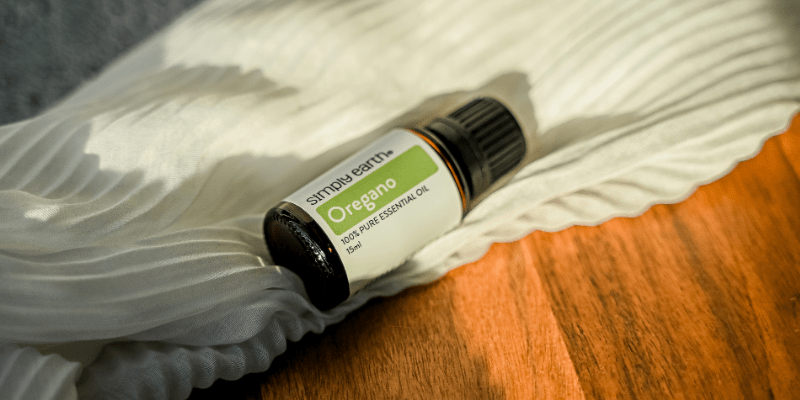
For centuries, oregano has been valued not only as a flavorful kitchen herb but also as a natural remedy in traditional medicine. In recent years, oregano oil has gained renewed attention in the wellness world for its powerful antimicrobial and immune-supporting properties. From holistic health circles to mainstream wellness blogs, people are increasingly exploring the many oregano oil uses for skin care, digestion, immunity, and more.
It is important to note that there are two main types: oregano essential oil and oil of oregano supplements. Oregano essential oil is a highly concentrated extract typically used in aromatherapy, topical blends, and natural cleaning products. On the other hand, oil of oregano supplements are usually diluted preparations taken in capsule or liquid form to support internal wellness. Understanding this distinction helps ensure you choose the right option for your needs and use it safely.
What is Oregano Essential Oil?
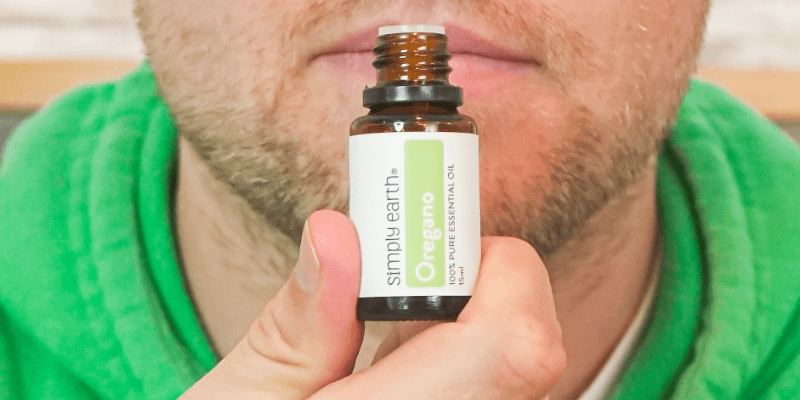
Oregano essential oil is produced through steam distillation of the leaves and flowers of the oregano plant (Origanum vulgare). The result is a thin, pale yellow oil with a strong, herbal aroma that is both peppery and slightly sharp. In aromatherapy, it is considered a middle note, meaning its scent is noticeable but not overpowering when blended with other oils.
The therapeutic strength of oregano essential oil comes from its rich concentration of active compounds, most notably carvacrol and thymol. Carvacrol is valued for its antimicrobial and antioxidant properties, while thymol is recognized for its antiseptic and immune-supporting effects. Together, these compounds make oregano oil one of the most potent natural extracts for wellness and cleaning.
Many people also encounter wild oregano oil, which is sometimes marketed as a stronger or more traditional form. While both come from species of the oregano plant, wild oregano oil typically refers to oils distilled from Origanum vulgare hirtum, a subspecies found in the Mediterranean. When comparing wild oregano oil vs oregano essential oil, the main differences usually lie in plant variety, carvacrol content, and marketing claims rather than entirely separate health benefits.
Oregano Oil Benefits & Medicinal Uses
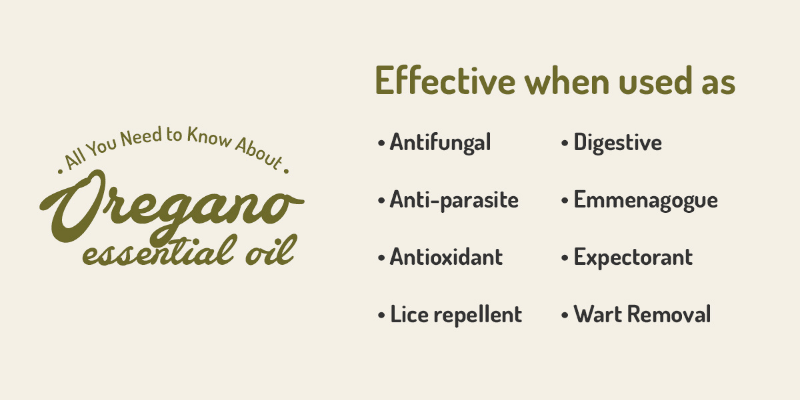
1. Antimicrobial & Cleansing Properties
One of the most recognized oregano oil properties is its strong antimicrobial activity. Studies suggest it can help fight bacteria, fungi, and certain viruses. Traditionally, it has been used as one of the natural oregano oil remedies for infections and as a household cleaner to sanitize surfaces. When added to DIY sprays or cleaning blends, oregano essential oil not only disinfects but also leaves behind a sharp, herbal scent that refreshes the home.
2. Anti-Inflammatory & Joint Support
Oregano oil contains compounds that help reduce swelling and ease discomfort, making it useful for supporting joint and muscle health. Some people apply diluted oregano oil blends to sore muscles or stiff joints to find relief. Research on wild oregano oil effect on arthritis also suggests potential benefits, showing promise as a natural option for those dealing with chronic inflammation. These uses highlight oregano’s role in medicinal applications that go beyond simple household remedies.
3. Digestive Health & Gut Support
Oregano oil may also benefit the digestive system. Research has explored its potential for managing bacterial overgrowth in the gut, particularly in people with small intestinal bacterial overgrowth (SIBO). In some studies, herbal formulas containing oregano were as effective as standard antibiotics in improving symptoms. These findings highlight the oregano essential oil benefits for digestion, especially in restoring balance to the gut microbiome.
4. Skin Health & Topical Benefits
Thanks to its cleansing and antimicrobial properties, oregano essential oil is sometimes included in natural skincare routines. Diluted properly with a carrier oil, it may help reduce acne, soothe irritation, and protect the skin against unwanted bacteria. Many natural health advocates highlight oregano essential oil benefits for skin as a way to promote a clear and healthy complexion while avoiding harsh synthetic chemicals.
5. Heart & Cholesterol Support
Preliminary research suggests oregano oil may help maintain healthy cholesterol levels and support heart function. Its anti-inflammatory compounds can ease systemic inflammation, which is a key factor in cardiovascular health. While more human studies are needed, oregano oil’s role in supporting heart wellness is an area of growing interest.
6. Immune Boosting & Antioxidant Effects
Rich in carvacrol and thymol, oregano oil provides antioxidant support by neutralizing free radicals that damage cells. These compounds also stimulate the immune system, helping the body fight off common illnesses. Regular, safe use of oregano oil as part of a wellness routine may contribute to stronger natural defenses.
7. Respiratory & Detox Support
Oregano oil has traditionally been used to support breathing and ease respiratory discomfort. Inhalation or diffuser blends may help open airways and soothe congestion. Some wellness routines also include oregano oil in detox protocols, often referred to as an oregano oil cleanse, aimed at resetting the body and supporting overall vitality.
How to Use Oregano Oil
There are several safe and effective ways to incorporate oregano oil into your daily routine. It can be taken in capsule form as a supplement, diluted with a carrier oil for topical application, added to a diffuser for aromatherapy, or used in DIY cleaning blends to sanitize the home naturally. The key is to use the right method for your specific need and to always dilute oregano essential oil before applying it to the skin.
You’ve probably used oregano in your cooking, but have you ever tried it as an essential oil? In this video, Katie (Certified Aromatherapist) explains how oregano essential oil works, the best ways to use it, and safety tips to keep in mind. From cleaning recipes to diffuser blends, this quick guide will show you how to make the most of oregano oil in your daily routine.
Now, let’s look at some DIY recipes and blends you can try at home.
DIY Recipes & Blends for Oregano Oil
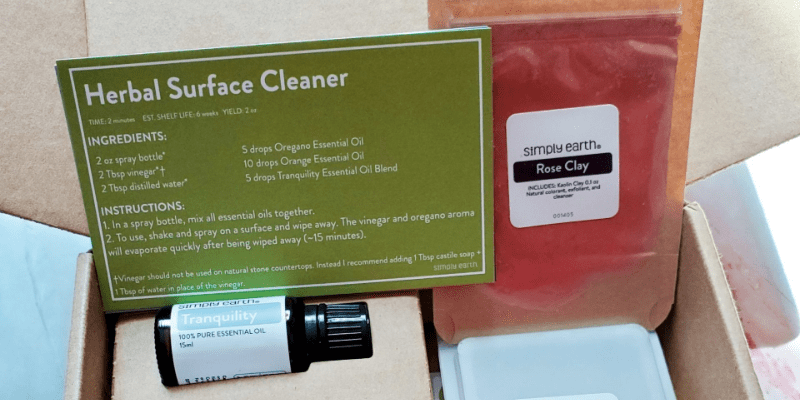
Oregano oil is a versatile ingredient in homemade wellness and cleaning products. You can add it to all-purpose sprays to disinfect counters, create soothing roll-ons for sore muscles, or mix it into natural body care items.
Cleaning Recipes
- Herbal Surface Cleaner – combine water, vinegar, and a few drops of oregano oil.
- Simple Floor Cleaner – a natural solution to keep your floors sparkling clean.
- Homemade Carpet Cleaning Powder – freshen up carpets naturally with oregano oil.
Wellness & Relief
- Sore Muscles Roll-On – dilute oregano oil with peppermint and carrier oil for targeted relief.
- Massage Oil for Joint & Muscle Pain – blend oregano oil with soothing carrier oils for tension relief.
- Natural Wart Removal Roll-On – a gentle roll-on remedy to help with skin concerns.
- Wound Care Roll-On – oregano’s antibacterial power in a skin-safe blend.
Skincare & Body
- Clarifying Lotion Bar – add oregano oil to a moisturizing base for skin-cleansing benefits.
- Fresh Floral Body Milk Spray – combine oregano with floral oils for a light, hydrating body mist.
Experimenting with an oregano essential oil recipe is a simple way to enjoy its natural antibacterial, cleansing, and soothing properties.
Diffuser Benefits & Blends for Oregano Oil
Using oregano oil in a diffuser allows you to purify the air while supporting your immune system. Many people find its sharp, herbal aroma grounding and cleansing. Popular oregano essential oil diffuser benefits include reducing airborne bacteria, easing congestion, and creating a healthier home environment.
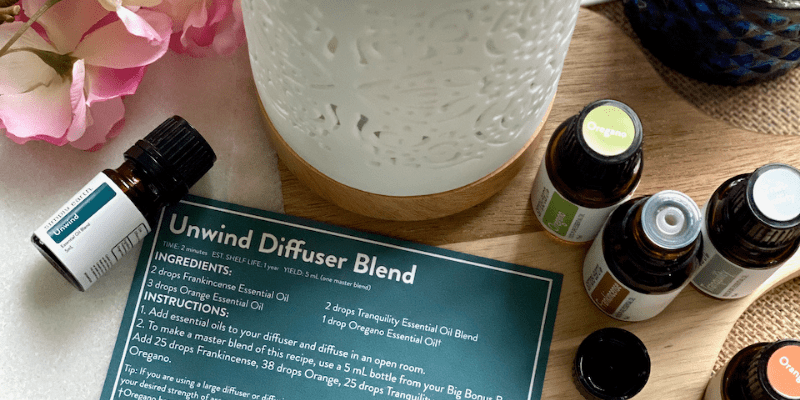
Try pairing it with citrus or floral oils to balance the intensity. A few favorite oregano oil diffuser benefits recipes include:
- April Showers Diffuser Blend – oregano + citrus + floral oils (refreshing, uplifting atmosphere)
- Unwind Diffuser Blend – oregano + frankincense + orange + tranquility blend
- Immune Boost Blend – oregano + lemon + eucalyptus
- Relax & Refresh – oregano + lavender + bergamot
- Clean Air Blend – oregano + tea tree + rosemary
Oregano Oil Blends Well With…
Because of its strong scent, oregano essential oil works best when balanced with softer or complementary aromas. Common oils it pairs well with include:
- Herbal oils: rosemary, thyme, marjoram.
- Citrus oils: lemon, bergamot, grapefruit.
- Floral oils: chamomile, geranium, lavender.
- Woody oils: pine, cedarwood.
These pairings enhance therapeutic benefits and create more pleasant aromas in DIY recipes. Knowing which oils oregano essential oil blends well with helps you expand its uses for both wellness and home care.
Wild Oregano Oil vs Oregano Essential Oil
Many people wonder about the difference between wild oregano oil and oregano essential oil, since both come from the same herb family but are used in slightly different ways.
| Feature | Oregano Essential Oil | Wild Oregano Oil |
|---|---|---|
| Plant Source | Origanum vulgare | Origanum vulgare hirtum (Mediterranean subspecies) |
| Potency | Moderate, strong but typically lower carvacrol levels | Higher carvacrol content, considered more potent |
| Common Forms | Aromatherapy oil, topical blends, cleaning recipes | Liquid drops, softgel capsules, supplements |
| Best Uses | Diffuser blends, skin care (diluted), natural cleaning | Gut health, immune support, inflammation relief |
| Caution | Must be diluted before topical use | Stronger concentration, higher risk of irritation |
Oregano essential oil is typically steam-distilled from Origanum vulgare. It is a concentrated aromatic oil best suited for external use such as topical applications, diffuser blends, and DIY cleaning recipes. Its benefits include antimicrobial cleansing, immune support, and skin care when properly diluted.
Wild oregano oil most often comes from Origanum vulgare hirtum, a Mediterranean subspecies known for its higher carvacrol content. It is usually sold in liquid drops or softgel capsules, making it a popular choice for internal wellness routines. The higher potency is why many people highlight wild oregano essential oil uses for gut health, immunity, and inflammation support.
The benefits of wild oregano essential oil overlap with oregano essential oil, but its stronger concentration can make it more effective in certain cases. At the same time, this potency means it must be used with greater caution to avoid irritation or side effects.
Internal Use & Safety for Oregano Oil
Some people are curious about how to use oregano essential oil internally, but safety is the most important factor to consider. Because oregano essential oil is highly concentrated, it should never be ingested directly. Ingesting undiluted drops can irritate the mouth, throat, or digestive tract, and may interact with certain medications. If internal use is considered, it should only be done under the supervision of a healthcare professional or an aromatherapist trained in clinical applications.
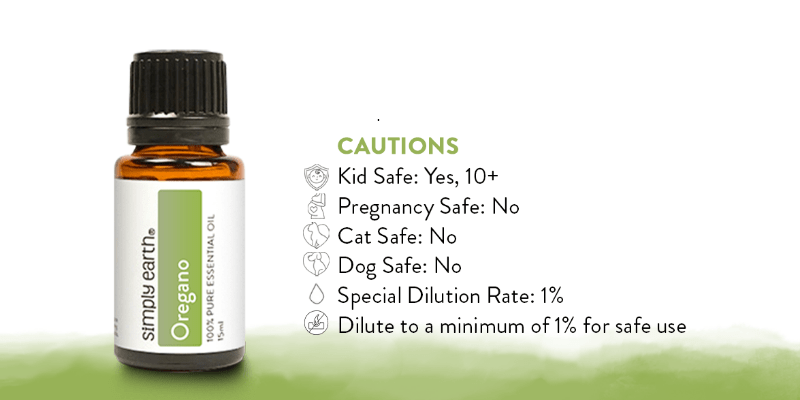
For supplements, many turn to wild oregano oil capsules or diluted liquid extracts, which are formulated specifically for oral use. These products are generally safer than taking raw essential oil drops. Still, taking oregano oil internally can carry risks if used excessively, including stomach upset or potential effects on the liver.
Certain groups should be especially cautious:
- Children: Oregano oil is too strong for young children, and topical use should only be done with proper dilution on kids over age 10.
- Pregnant or breastfeeding women: Essential oils, including oregano, are generally not recommended because of potential hormonal or uterine effects.
- Pets: Some pet owners explore the idea of oregano oil for animals, but caution is needed. Studies suggest oregano oil may irritate dogs, so while anecdotal reports exist on wild oregano oil for dogs, it should not be used without veterinary guidance. Cats are especially sensitive and should avoid oregano essential oil entirely.
The bottom line: internal use of oregano oil can be powerful, but also risky. Stick to properly diluted supplement forms, and always consult a professional before adding it to your wellness routine.
Science Behind Oregano Oil Compounds
The unique strength of oregano oil comes from its naturally occurring compounds, which give it its therapeutic power and distinct aroma. Understanding these components helps explain many of the well-known oregano oil properties.
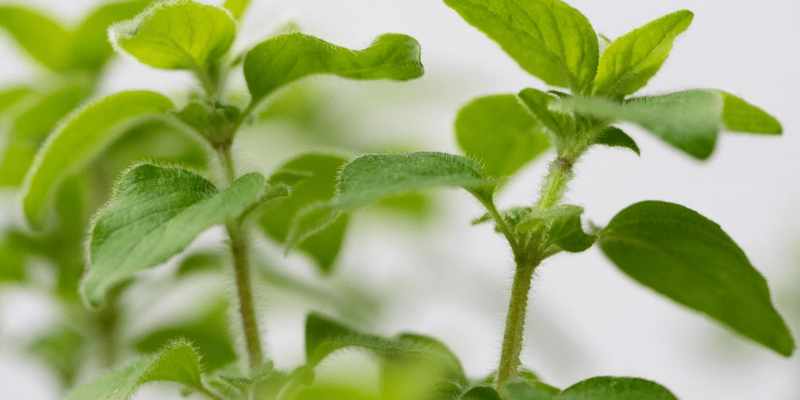
- Carvacrol: The most abundant active compound in oregano oil, carvacrol is responsible for much of its antimicrobial and antioxidant activity. Research shows it can disrupt bacterial cell membranes, making it a potent natural defense against harmful microorganisms.
- Thymol: Another major compound, thymol has strong antiseptic and immune-supporting qualities. It is often used in natural disinfectants and oral care products because of its ability to fight bacteria and fungi.
- Para-cymene: Found in smaller amounts, para-cymene enhances the effectiveness of carvacrol and thymol. While it does not have strong antimicrobial activity on its own, it works as a synergistic compound, boosting the overall impact of oregano oil.
Together, these compounds explain why oregano oil has been studied for uses ranging from natural cleaning solutions to immune system support. The balance of carvacrol, thymol, and para-cymene determines the quality and potency of each batch, which is why sourcing and purity testing are so important.
How to Choose Quality Oregano Oil
With oregano oil growing in popularity, it’s important to remember that not all products are created equal. Choosing a high-quality oregano oil ensures you experience its full therapeutic benefits while avoiding risks from diluted or adulterated versions.
- Check for Purity Tests
One of the most important steps in selecting oregano oil is verifying its purity. Trusted brands provide third-party GC/MS (Gas Chromatography/Mass Spectrometry) test reports, which confirm the oil’s chemical composition. These tests identify key compounds like carvacrol and thymol, ensuring they’re present in the right concentrations. GC/MS testing also rules out synthetic additives or fillers that can reduce quality and effectiveness.
- Examine the Source
Sourcing plays a major role in determining oil quality. Oregano grown in the Mediterranean region—where the climate and soil naturally enhance its active compounds—tends to produce superior oil. Look for suppliers that are transparent about where and how their oregano is harvested, as this often reflects their commitment to ethical and sustainable practices.
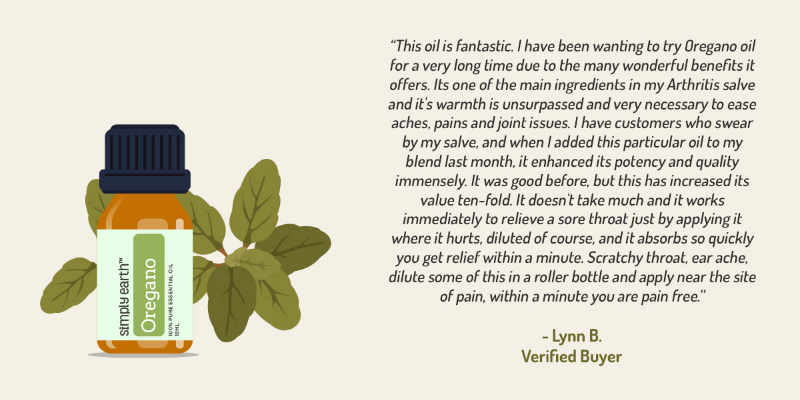
- Consider Reputable Brands
Because the market is crowded, some companies stand out for their consistent quality and customer trust. For instance, DoTERRA oregano oil is frequently highlighted by wellness enthusiasts for its reliability and versatility. Many users report DoTERRA oregano oil benefits such as immune support and natural cleaning power. Others share creative ways to enjoy DoTERRA oregano uses, like blending it with carrier oils or adding it to diffusers. While brand preferences vary, choosing a reputable company provides extra assurance of purity and safety.
- Watch Out for Adulteration
Unfortunately, some low-cost oregano oils are diluted with carrier oils or even synthetic substances without clear labeling. Always read ingredient lists carefully. Choose brands that provide transparent sourcing and testing information, so you know exactly what you’re getting.
- Choose Oregano Oil You Can Trust
By paying attention to purity, sourcing, and brand reputation, you can ensure you’re selecting an oregano oil that’s both effective and trustworthy. Doing so allows you to fully enjoy genuine oregano DoTERRA benefits or those from other reputable brands—helping you make the most of oregano oil’s natural healing properties.
FAQs
Is oregano essential oil the same as wild oregano oil?
Not exactly. Oregano essential oil is usually steam-distilled from Origanum vulgare and is mainly used in aromatherapy, topical applications, or cleaning blends. Wild oregano oil often comes from Origanum vulgare hirtum, a Mediterranean subspecies with higher carvacrol content. While their benefits overlap, wild oregano oil is often considered more potent and is commonly sold in supplement form.
Can wild oregano oil kill viruses?
Laboratory studies suggest compounds like carvacrol and thymol in wild oregano oil have antiviral properties. However, most of this evidence comes from in vitro research, not large human trials. This means wild oregano oil may help reduce viral activity in controlled settings, but it should not replace professional medical treatment.
How do I dilute oregano oil safely?
Because oregano oil is very strong, it should always be diluted before applying to the skin. A general guideline is to use 1–2 drops of oregano essential oil per teaspoon of carrier oil (such as coconut or jojoba oil). For sensitive skin, start with a weaker ratio and test on a small area first. Never apply oregano essential oil directly without dilution.
What are the side effects of oregano essential oil?
When used incorrectly, oregano oil may cause skin irritation, stomach upset, or allergic reactions. Ingesting undiluted essential oil can be harmful, and long-term overuse may stress the liver. Pregnant women, young children, and people on medications should consult a healthcare provider before using oregano oil.
Can pets use oregano oil safely?
Caution is needed when it comes to pets. Dogs may tolerate diluted oregano oil in some cases, but even then it should only be used under veterinary guidance. Cats are especially sensitive to essential oils and should not be exposed. If you notice any unusual behavior in your pet after exposure, stop use immediately and seek veterinary advice.
Things to Remember Before Using Oregano Oil
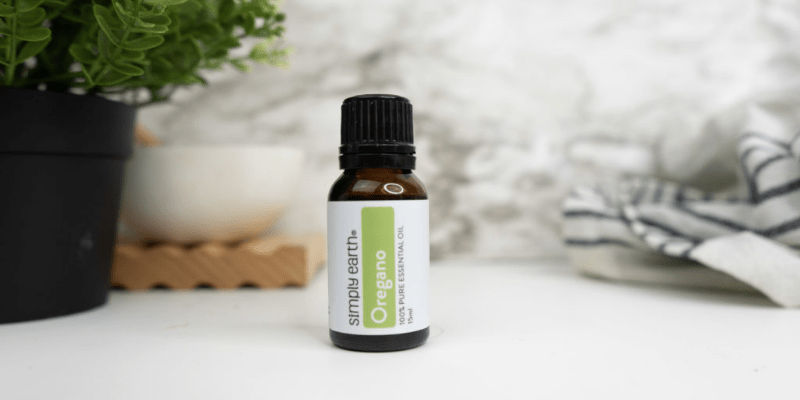
Before adding oregano oil to your wellness or cleaning routine, it is important to keep a few safety reminders in mind:
- Always dilute before use. Oregano essential oil is highly concentrated and can irritate the skin if applied directly. Combine it with a carrier oil such as coconut, olive, or jojoba oil.
- Use with caution in sensitive groups. Pregnant or breastfeeding women, young children, and people with chronic health conditions should consult a healthcare provider before use.
- Avoid internal use unless guided by a professional. Taking oregano oil internally should only be done with products specifically formulated for ingestion, and only under medical supervision.
- Be mindful of pets. Cats should never be exposed to oregano essential oil, and dogs may be sensitive to it as well. Watch for signs of discomfort.
- Store properly. Keep oregano oil in a dark glass bottle, tightly sealed, and out of direct sunlight to maintain potency.
Dilution Guide
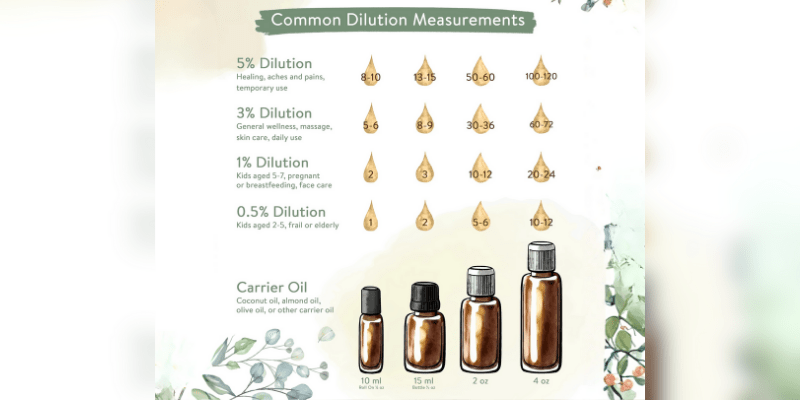
You can download this dilution chart here.
Conclusion
Oregano oil is one of the most powerful natural extracts available today, offering a wide range of potential wellness applications. From cleansing the skin and supporting digestion to easing joint discomfort and boosting immunity, the many oregano oil uses and benefits make it a versatile addition to natural health routines.
At the same time, its potency means it must always be handled with care. Proper dilution, safe application, and awareness of risks for children, pets, and sensitive groups are essential. Used responsibly, oregano oil can provide meaningful support for both everyday wellness and household needs.
If you are curious to experience its effects for yourself, start small with simple recipes, diffuser blends, or DIY cleaning sprays. By following safety guidelines and choosing high-quality products, you can enjoy the benefits of oregano oil while minimizing risks.

